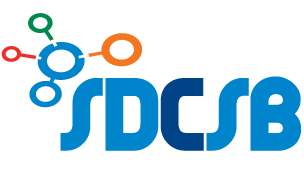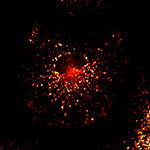Genetics, Bioinformatics and Systems Biology Colloquium
Thursdays, 12:00 pm – 1:00 pm
UC San Diego, Powell-Focht Bioengineering Hall, Fung Auditorium
Complete schedule here
Presenter: Dr. Trey Ideker
UCSD School of Medicine
SDCSB Director, Division Chief of Medical Genetics; Professor of Bioengineering; Adjunct Professor of Computer Science.
Integrated Genomic and Proteomic Analyses of a Systematically Perturbed Metabolic Network
Trey Ideker et al.
Science 292, 929 (2001)
Science-2001-Ideker
We demonstrate an integrated approach to build, test, and reÞne a model of a cellular pathway, in which perturbations to critical pathway components are analyzed using DNA microarrays, quantitative proteomics, and databases of known physical interactions. Using this approach, we identify 997 messenger RNAs responding to 20 systematic perturbations of the yeast galactose-utilization pathway, provide evidence that approximately 15 of 289 detected proteins are regulated posttranscriptionally, and identify explicit physical interactions governing the cellular response to each perturbation. We reÞne the model through further iterations of perturbation and global measurements,suggesting hypotheses about the regulation of galactose utilization and physical interactions between this and a variety of other metabolic pathways.
Presenter: Dr. Alexander Hoffmann
UCSD Chemistry and Biochemistry
SDCSB Co-Director, Professor.
Stimulus Specificity of Gene Expression Programs Determined by Temporal Control of IKK Activity
Shannon Werner, Derren Berken, Alexander Hoffmann
Science 309, 1857 (2005)
Science-2005-Hoffmann
A small number of mammalian signaling pathways mediate a myriad of distinct physiological responses to diverse cellular stimuli. Temporal control of the signaling module that contains IκB kinase (IKK), its substrate inhibitor of NF-κB (IκB), and the key inflammatory transcription factor NF-κB can allow for selective gene activation. We have demonstrated that different inflammatory stimuli induce distinct IKK profiles, and we examined the underlying molecular mechanisms. Although tumor necrosis factor-α (TNFα)-induced IKK activity was rapidly attenuated by negative feedback, lipopolysaccharide (LPS) signaling and LPS-specific gene expression programs were dependent on a cytokine-mediated positive feedback mechanism. Thus, the distinct biological responses to LPS and TNFα depend on signaling pathway-specific mechanisms that regulate the temporal profile of IKK activity.













